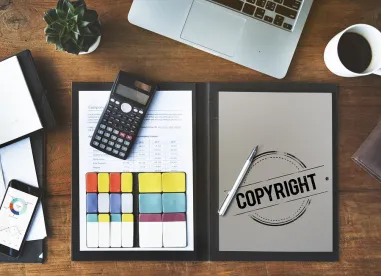Like much of the federal government, the U.S. Copyright Office (the “Office”) is adjusting its practices and procedures in response to the COVID-19 pandemic. Unlike registration and recordation with the U.S. Patent and Trademark Office, copyright registration and recordation regulations still require the submission of hard copy materials in many instances. The Office’s technical infrastructure will not permit electronic filing of certain types of applications and cannot accommodate electronic submission of documents for recordation. The Office has been closed since March 13, 2020, with registration specialists working remotely. Hand deliveries are not accepted at this time; mail sent through the postal system or by commercial carrier is received at an off-site facility but will not be processed until the Office reopens.
Given these limitations, and through powers extended by the CARES Act, the Office has issued a number of temporary measures to remove certain restrictions and to expand its capabilities to receive electronic submissions across a wide range of services including registration, recordation, and research. These changes are described in a Final Rule that was published in the Federal Register on April 8, 2020, and are detailed on dedicated pages of the Office’s website – here and here . Changes include: permitting copies of paper application forms to be submitted by email; accepting electronic versions of deposits, supplemented by a declaration and with physical copies to be sent by mail; and allowing litigation statement request forms (needed for obtaining copies of deposit materials) to be submitted by email. These adjustments offer welcome relief for rights holders looking to protect their copyrights – particularly with the plethora of materials being posted online.
Despite the broad scope of the temporary regulations, they unfortunately do not help with many of the filings that are often part of mergers and acquisitions and IP due diligence: recording documents to update ownership and/or to perfect the grant or release of a security interest (see our blog entries on perfection and on the seven secrets of security interests). Hard copies of these documents must still be provided to the Office and will not be processed until it reopens. The effective date of a certificate of recordation that ultimately issues will be when the Office receives the documents and payment; it appears that items sent by mail are being date-stamped upon delivery. Consider using a delivery method, such as U.S. priority mail or FedEx, that provides a dated receipt in case there is any question later as to when the material arrived. It is not clear what effect requesting (and paying for) expedited processing will have on requests to record documents that are mailed to the Office during the shutdown. (On April 27, 2020, the Office launched a limited pilot project for the electronic recordation of ownership updates, documents relating to liens, and similar filings as part of its ongoing modernization efforts; while this is great progress, availability to the general public is not expected for several years.)
So what does that mean for mergers and acquisitions, which are still ongoing during the Office’s closure? First, extra steps will be needed to ensure each party’s responsibilities are clearly delineated: determining who will be responsible for monitoring the status of the closure and pending filings, keeping the other party or parties updated with developments, and entering reminders on calendars months in the future for follow-ups. Second, depending on what documents must be recorded, the purchase agreement itself may need revisions. For example, if an old security interest has been released but the release has not yet been recorded with the Office, the parties may wish to add a carve-out provision or a footnote to the standard representation and warranty stating that the copyright registrations are free and clear of liens. Third, the parties may elect to wait to submit documents to record on an expedited basis after the Office reopens, as part of post-closing obligations, in the hopes of receiving a certificate of recordation sooner than waiting for the backlog of filings made during the closure to subside.
Whatever choices are made, the parties to a merger or acquisition will need to think creatively to address the limitations on recording documents with the Office in light of the COVID-19 closure. Check back with us for updates in case the Office issues additional temporary regulations, should the closure continue into the summer.




 />i
/>i

